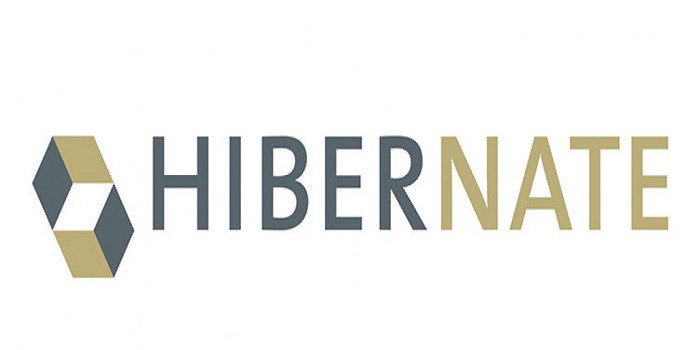
Know The Importance Of Using Hibernate In Java – JavaIndia
To all the Java developers out there!
- Are you fed up with repeating the same lines of code in your application for fetching the data from the database?
- Are you feeling irritated to always mapping objects to your database?
- Are you struggling to implement oops with the JDBC code?
- Is it too time taking to migrate from one database to the other?
- Do you struggle to create associations between tables using JDBC?
If yes, we have brought to you the ultimate solution in the form of an ORM tool called HIBERNATE.
What is HIBERNATE?
Hibernate in Java refers to an open-source object-relational mapping (ORM) tool. It offers a framework to map object-oriented domain models to relational databases and develop web applications.
The object-relational mapping is based on the containerization of objects and the abstraction that offers this ORM tool the ability to function. Abstraction help Hibernate to address, access and manipulate objects without considering the source of their data.
The Hibernate ORM framework guides mapping Java classes to database tables and Java data types to SQL data types and offer querying and retrieval.
What are the benefits of Hibernate?
Many ORM software supports Java programming language, but Hibernate has gained popularity as it provides an all-in-one ORM solution. Some of the amazing benefits of Hibernate are:
ORM
Hibernate ORM help detect the data mismatch that occurs between the object-oriented classes of an application and the relational database. The ORM easily connects these two classes via an XML mapping file. Hire Java developers to gain complete control over the enterprise application in Java and database design, making Hibernate a flexible and powerful ORM tool.
Transparent Resolution
It ensures the automatic connection between the application’s objects and its database tables. This prevents Java developers from writing long lines of connection codes. Also, transparent resolution enables hibernate to minimize the development time and maintenance cost.
Independent Database
The Hibernate is database-independent, which means it can get used for connecting any database such as Oracle, MySQL, DB2, and more. This cross-database portability of Hibernate is possible by simply changing a parameter “database dialect” in the configuration file.
HQL
Hibernate supports a powerful query language called HQL (Hibernate Query Language). This query language is more powerful than SQL. Also, it is entirely object-oriented.
HQL’s advanced features like pagination and dynamic profiling are absent in SQL. Java developers can also implement HQL to some prominent object-oriented concepts such as inheritance, polymorphism, and association.
Dual-Layer Caching
Hibernate supports both the first and second levels of caching mechanisms. Where the first level cache is associated with the session object (used by default), the second level caching is associated with the Session Factory object.
With the caching concept, hibernate retains the objects in the cache to reduce repeated hits to the database. This feature has made Hibernate a highly scalable ORM tool that optimizes an application’s performance.
Version Property
Another feature of Hibernate is it supports optimistic locking via the version property feature. It also supports multiple transactions without influencing the other. For instance, when two or more users try to alter a database entity at the same time, the version field avoids the conflicts and gives preference to the user that commits the changes first. On the other hand, the other users are prompt to an error message and will be asked to restart the process.
Open Source
Hibernate is an open-source platform with zero cost product license. This lightweight software can easily get downloaded from its source Hiber website hibernate.org.
Scalability
Hibernate is a highly-scalable tool. It can adapt to any given environment. From an intranet application with hundred users to a large critical application with thousands of users, hibernate supports both applications.
Easy to learn
If you are new to hibernate and Java development, you need not worry about the complexity. As a framework, it takes care of the changes made to the database automatically, which further eases the developer’s work up to great extent.
Why use Hibernate framework?
Hibernate eliminates the shortcomings of other ORM tools and technologies like JDBC. If you are wondering whether or not to choose Hibernate framework, here are some more features:
- Hibernate overcomes the database dependency that occurs in the JDBC
- It strengthens the object level relationship
- It overcomes the exception-handling part which is crucial for JDBC
- Hibernate also overcomes the object level relationship
- It reduces the length of code with enhanced readability by overcoming the boilerplate struggle
Final Thoughts
Hibernate offers optimal and efficient solutions for all tasks which overcome the shortcomings of JDBC. Still confused? Talk to our professionals and they shall guide you with Java development services and applications.
We are excited to talk about your project!
FAQs
What is ORM in Hibernate?
Hibernate ORM stands for Object Relational Mapping. It is a mapping tool pattern used for converting data stored in a relational database to an object used in the object-oriented programming environment. This tool also helps in simplifying data retrieval, creation, and manipulation.
What are the important interfaces of Hibernate framework?
Hibernate core interfaces are:
- Configuration
- Session Factory
- Session
- Criteria
- Query
- Transaction
What is a session in hibernate?
A session refers to an object that maintains the connection between Java object application and database. Session also has methods for storing, retrieving, modifying, or deleting data from the database using methods like persist (), load (), get (), update (), delete (), etc. Above all, it has factory methods to return Query, Criteria, and Transaction objects.

